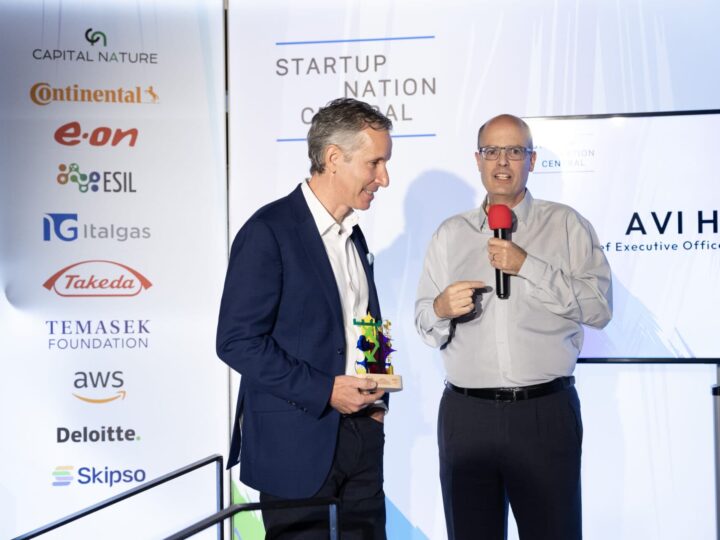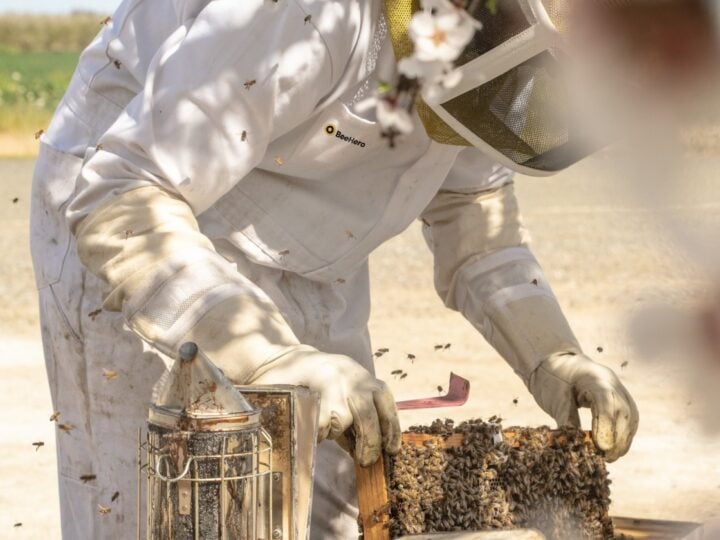“Clean” isn’t always as clean as you think. While the chemicals in cleaning solutions and water purification systems do away with germs, they dirty the environment and aren’t healthy for humans.
An Israeli company is offering an alternative: an ozone-based cleaning system to purify tap water. The system, says Ittai Weissberg, CEO of Greeneng Solutions, is better at getting rid of germs, and is a lot safer than chlorine- and ammonia-based cleaning solutions. And it does the job cheaply.
Ozone consists of three oxygen atoms instead of the normal two, generated by ultraviolet light that breaks apart oxygen atoms and allows them to recombine into ozone. It’s long been known that once injected in water, ozone is extremely effective at killing bacteria: 50 percent more effective than chlorine and 3,200 times faster. No pathogen can survive ozone, nor can a germ adapt to it. In fact, the US Food & Drug Administration determined ozone to be a completely safe method of water decontamination in 2001.
The problem is that producing the ozone and applying it to water was an expensive proposition. But Greeneng has developed technology to more cheaply produce ozone. For the first time, says Weissberg, ozone water decontamination is now price-competitive with chemical, especially chlorine, decontamination.
Germ-free kitchens
Two-year-old Greeneng’s flagship product, Ozochef, is designed for commercial kitchens. Tap water infused with ozone kills germs on contact and can be used for disinfecting fruits and vegetables, cutting boards, utensils and work surfaces – without any soap or chemicals.
“The system is designed for commercial kitchens, in restaurants, catering halls, hotels and the like,” says Weissberg. “We install Ozochef at the source of the water in the kitchen, and the system processes all the water coming out of the kitchen taps. There’s no need to change or add anything, so the kitchen remains germ-free. The system is fully controlled by an advanced controller which runs all actions and decisions such as when and how much ozone to produce, keeping the exact ozone dosage in the disinfected water, keeping water pressure constant, etc.”
Banishing “chemical cocktails” from these kitchens, says Weissberg, takes away the risks involved with chlorine, which can react with organic matter in the water and form dangerous carcinogens.
“Why take a chance?” asks Weissberg. “With ozone you have perfectly safe decontamination that is more effective than what you get with chlorine.”
Safe recycled water
Greeneng’s other product based on ozone technology, the greyOgreen system, is designed for use in hotels and other notorious water-wasting facilities.
“New laws in Israel and other places require hotels, among other places, to recycle their water, and greyOgreen uses ozone to completely cleanse and recycle wastewater from showers, laundries and kitchens,” says Weissberg.
While there are many gray-water systems on the market, Weissberg claims Greeneng’s is superior because it produces water that’s actually clean enough to drink, although it may legally be used only for flushing toilets and watering gardens. And it is comparable in cost to other recycling systems.
Next up, Greeneng is getting ready to introduce a system to disinfect swimming pools without chlorine. Some studies have shown that chemicals in chlorinated swimming pools may cause asthma, respiratory problems and even cancer. Here, too, besides removing the health risk – and the bacteria – Greeneng’s technology keeps costs down, eliminating the need to buy copious amounts of chlorine. And the less chlorine in water runoff, the better for the environment, Weissberg points out.
The company, based in Hod Hasharon, is privately funded but is seeking active investments. With a technology that disinfects water more safely, Weissberg is certain he will be able to find the funding Greeneng needs to expand.
“Ozone has all the advantages of chemical disinfection with none of the risks,” says Weissberg. “Our technology makes ozone disinfection more affordable. We expect to do very well as word gets out about this.”















